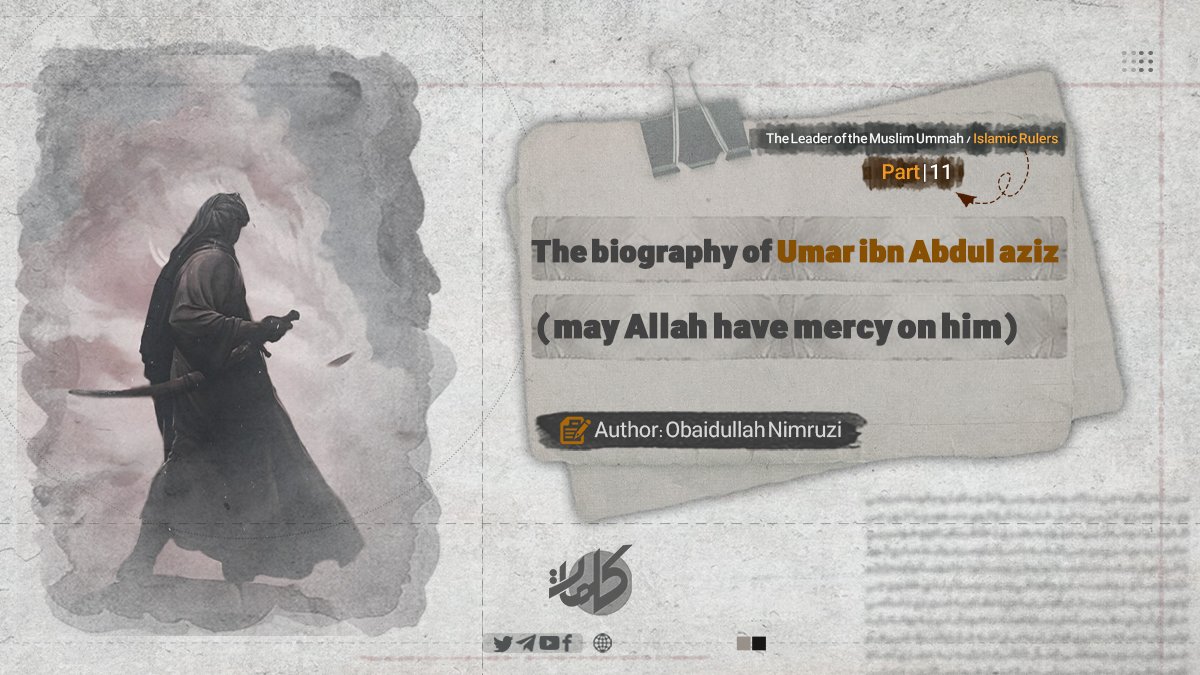
Author: Obaidullah Nimruzi
The Biography of Umar bin Abdul Aziz ‘may Allah have mercy on him’ (Part 11)
Paying Attention to Deeds and Morals
Before Umar bin Abdul Aziz, the caliphs were merely rulers and kings who had neither the opportunity nor the authority to reform the deeds and morals of the people. It was not considered part of their duties to provide religious guidance or monitor the moral and religious inclinations of the populace, nor to take on the task of advising and counseling. Such responsibilities were viewed as the domain of scholars and hadith experts.
Umar bin Abdul Aziz changed this perspective and established himself as a caliph in the truest sense. As soon as he assumed the caliphate, he sent detailed circulars to government officials and army commanders, which primarily included religious and moral directives rather than military orders, embodying a spirit of advice and counsel rather than mere governance.
In one of his letters, he expounded on the Islamic way of life during the era of the Prophethood and the Rightly Guided Caliphs (Khulafai Rashideen), elucidating the Islamic taxation system and the form of government. In these communications, he advised military commanders to prioritize prayers at their designated times, to be diligent in acquiring knowledge and disseminating it, to adhere to Sharia, and to embrace piety. He encouraged them to actively engage in the propagation of Islam within their respective domains.
He placed a strong emphasis on enjoining good and forbidding bad, articulating the detrimental effects of neglecting this fundamental duty. Furthermore, he stressed that those who administer justice should maintain moderation and caution until the time of punishment is to be executed, explaining the laws of Islamic punishment. He addressed the shortcomings and general moral decay within the monarchy, forbidding women from mourning inappropriately (Mataam) and attending funerals, while also issuing strict advice regarding the veil, explicitly condemning racial prejudice.
There was rampant misuse of Nabiz (a syrup made from dates), with people abusing it and becoming addicted to intoxicants, which led to a gradual moral decline. Umar bin Abdul Aziz clearly defined and explained Nabiz, outlining its limits.
Teaching Religious Sciences and Reviving the Sunnah of the Prophet (PBUH)
In addition to the aforementioned reforms and strategies, Umar bin Abdul Aziz, may Allah have mercy on him, paid special attention to teaching religious sciences and reviving the Sunnah. He appointed Abu Bakr ibn Hazm, may Allah have mercy on him, a prominent scholar of the time, to compile the hadith of the Prophet (peace and blessings of Allah be upon him). He instructed him: “Search for any hadith of the Messenger of Allah (peace and blessings of Allah be upon him) you find and write them down, for I fear for the death of scholars and the disappearance of knowledge.” He also explicitly stated: “You must certainly collect the hadiths of Umrah bint Abdur Rahman Ansari and Qasim bin Muhammad bin Abi Bakr (may Allah be pleased with them).”
Umar not only issued this order to Abu Bakr ibn Hazm but also sent circulars to all government officials and prominent scholars, highlighting the necessity of this task. In one circular, he wrote: “Study and collect the hadiths of the Messenger of Allah.” He appointed legal scholars to engage in this work with enthusiasm and tranquility.
Umar ibn Abdul Aziz himself, may Allah have mercy on him, was also a great scholar with in-depth knowledge of hadith and inheritance laws. In the early days of his caliphate, he wrote in his circulars: “There are limits, laws, and traditions. Whoever acts upon them, his faith will be complete; and whoever does not act upon them, his faith will remain incomplete. If I have a long life, I will teach you these matters and make them obligatory; if my time comes, then I do not yearn too much to live among you.”
Continues…


